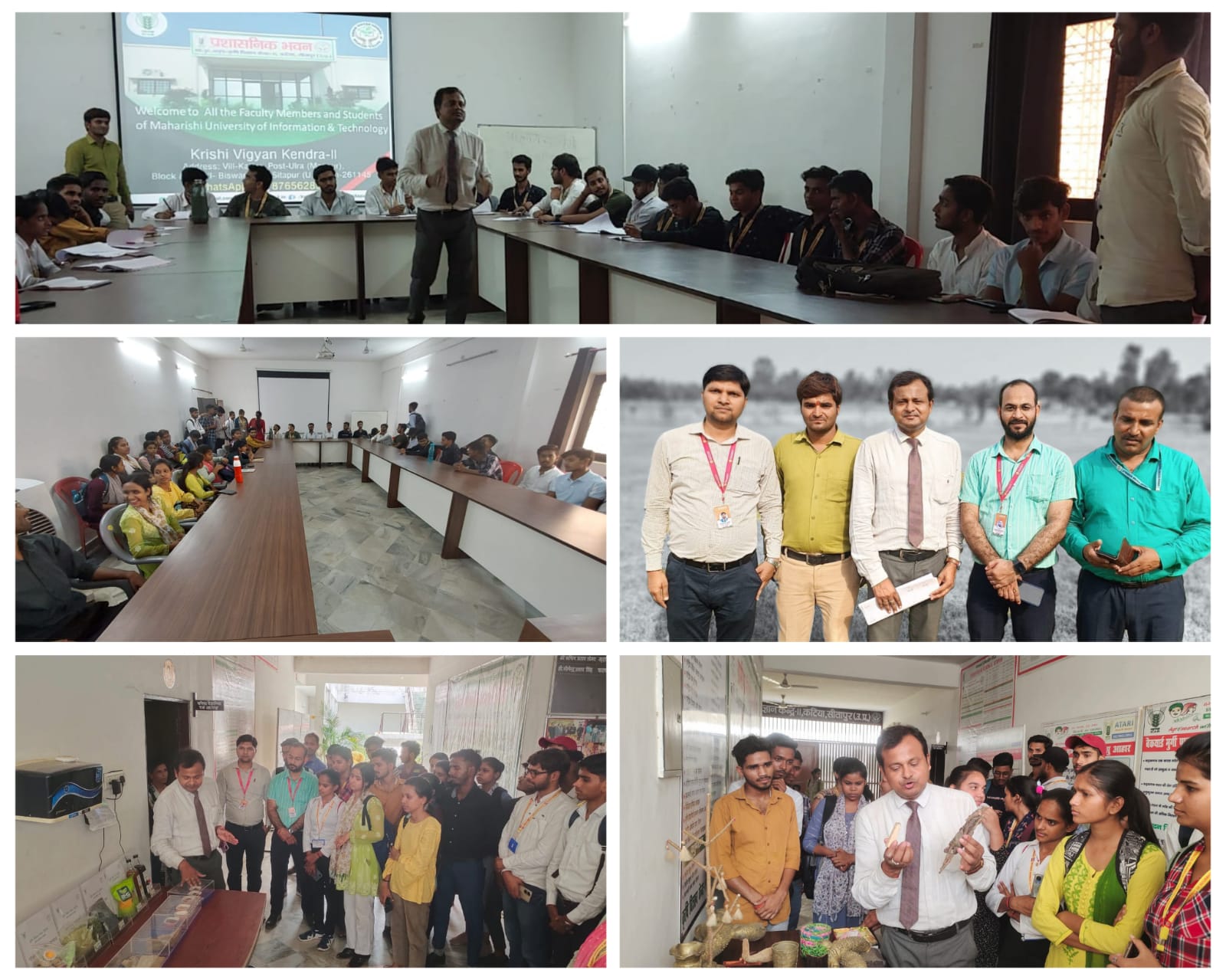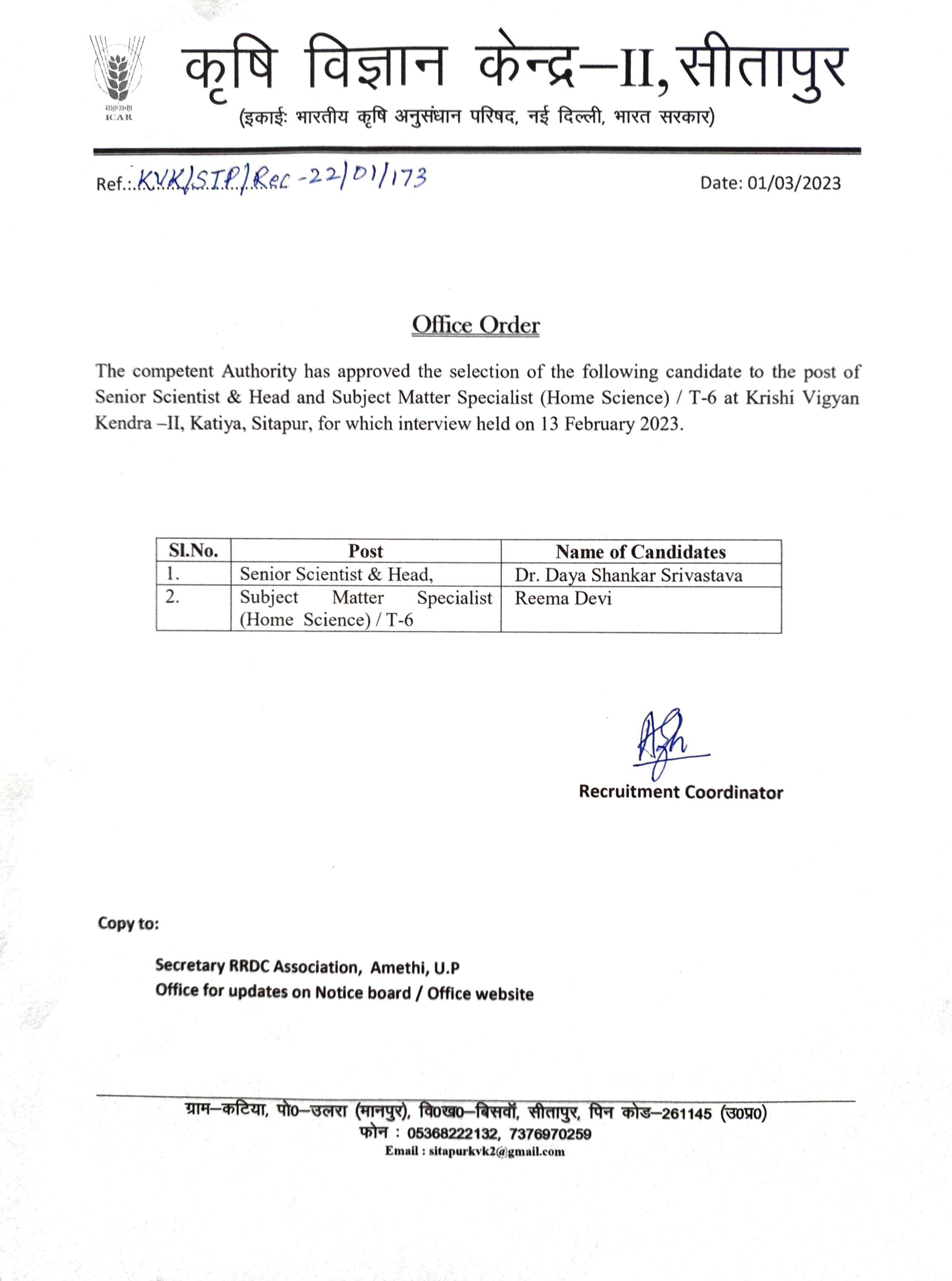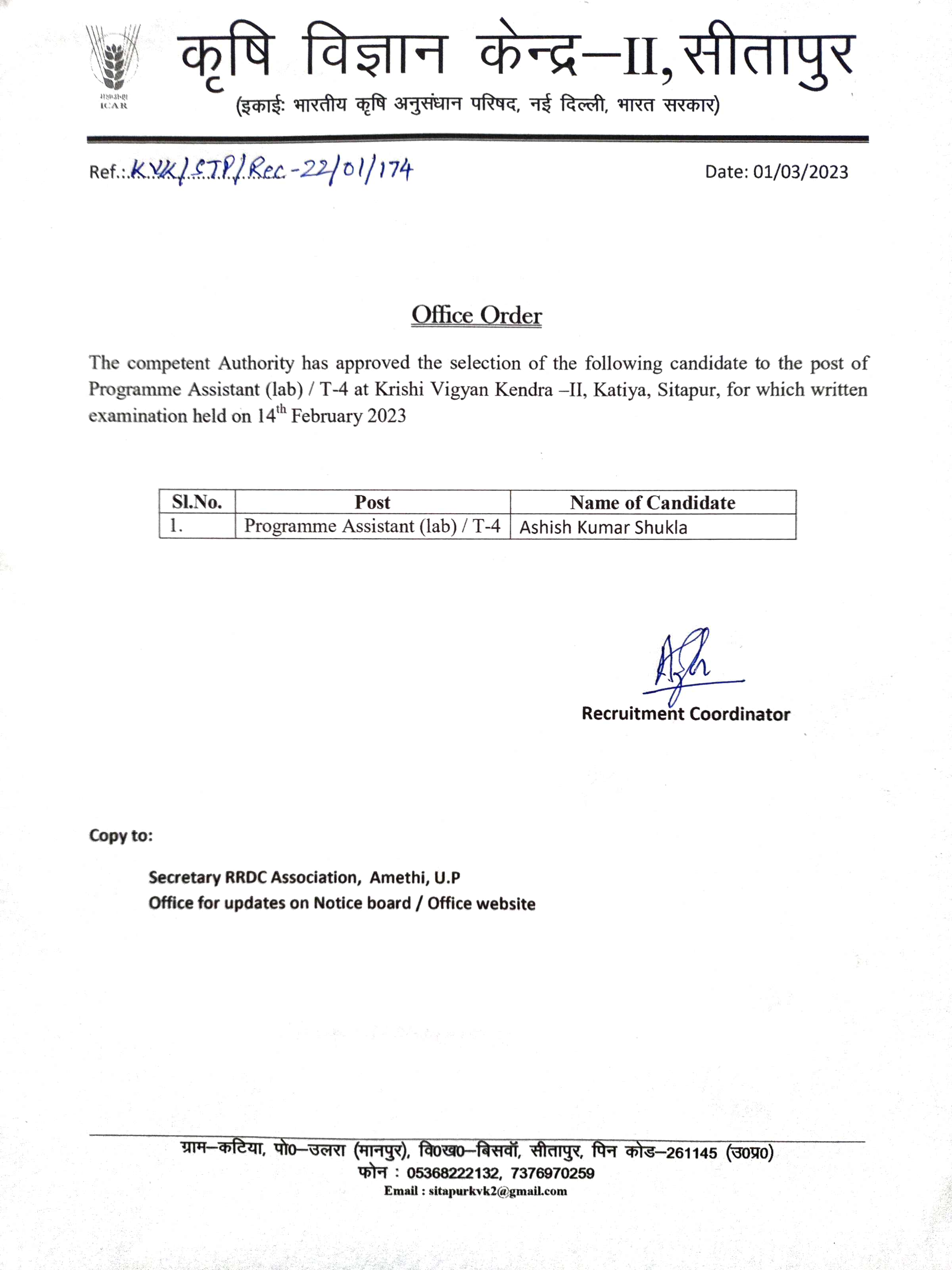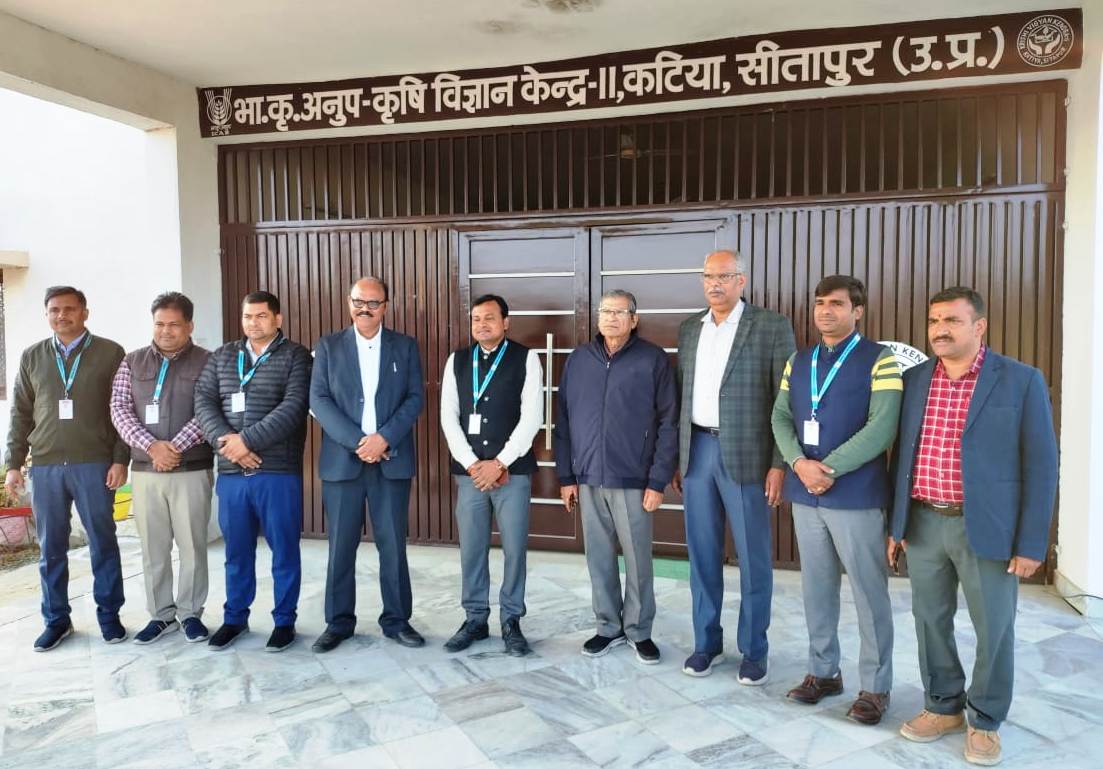Events
| S.N. | Title | Detail | Date | Action |
|---|---|---|---|---|
| 1 | शैक्षिक भ्रमण कार्यक्रम | शिक्षा सत्र 2022-23 के लिए शैक्षिक भ्रमण कार्यक्रम की योजना के तहत महर्षि सूचना एवं प्रौद्योगिकी विश्वविद्यालय (एमयूआईटी), लखनऊ के सभी कृषि संकाय सदस्यों ने बीएससी (द्वितीय सेमेस्टर) के 50 छात्रों के साथ कृषि विज्ञान केंद्र कटिया सीतापुर का दौरा किया। पूरी टीम ने कृषक समु�... Read more | 2023-05-17 |
 Click image to View |
| 2 | Interview result dated 13th February 2023 | Interview result attached | 2023-03-01 |
 Click image to View |
| 3 | Written examination result dated 14th February 2023 | Result attached | 2023-03-01 |
 Click image to View |
| 4 | Corrigendum notice for the vacant post “Senior scientist & Head and Subject Matter Specialist- Home Science/ T-6” | This is in reference to vacancy notice vide advertisement no. No.KVK/STP/22/Ad/1/2022/20 for the filling of vacant post “Senior scientist & Head and Subject Matter Specialist- Home Science/ T-6” of this institute. Earlier the date of interview in respective to the mentioned post was scheduled on 09/02/2023 which has now been Rescheduled on 13/02/2023 at same place and same venue. The other instructions are same as per the interview letter issued to the candidate. | 2023-02-03 |
Click image to View |
| 5 | Corrigendum notice for the vacant post of “Program Assistant- Lab /T-4” of this institute. | CORRIGENDUM NOTICE This is in reference to vacancy notice vide advertisement no. No.KVK/STP/22/Ad/1/2022/20 for the filling of vacant post “Program Assistant- Lab /T-4” of this institute. Earlier the date of written examination was scheduled on 10/02/2023 which has now been Rescheduled on 14/02/2023 at same place and same venue. The other instructions are same as per the written examination letter issued to the candidate. | 2023-02-03 |
Click image to View |
| 6 | IFFCO Nano DAP trial | Prof. K N Tiwari sir, Former HOD, Soil Science, CSA University Kanpur & Advisor, IFFCO, Shri Abhimanyu Rai, State Marketing manager, IFFCO, Shri G P Tiwari Sr, Manager IFFCO visited KVK Katiya Sitapur and Monitored IFFCO Nano DAP trial and Data recorded on field findings, video shooted. | 2023-01-28 |
 Click image to View |
| 7 | Interview date for the post of Senior Scientist & Head and SMS- Home Science/ T-6 with ref. to advertisement KVK/STP/22/AD/1/2022/20 | Interview date has been announced for the post of Senior Scientist & Head and SMS- Home Science/ T-6 schedule on 09 February 2023 | 2023-01-23 |
Click image to View |
| 8 | Written examination date for the post of Program Assistant Lab./T-4 with ref. to advertisement KVK/STP/22/AD/1/2022/20 | Written examination date has been announced for the post of Program Assistant Lab./T-4 schedule on 10 February 2023 | 2023-01-23 |
Click image to View |
| 9 | मुख्य विकास अधिकारी से कृषकों के मध्य अधिक सरलता व तत्परता से अनुश्रवण हेतु उपयोग हो रही प्रसार व संचार प्रौद्योगिकी पर वैज्ञानिकों से वार्ता | मुख्य विकास अधिकारी श्री अक्षत वर्मा, उप-कृषि निदेशक एवं जिला कृषि अधिकारी सीतापुर द्वारा कृषि विज्ञान केन्द्र, कटिया, सीतापुर का भ्रमण किया गया, मुख्य विकास अधिकारी महोदय ने केंद्र पर प्रदर्शित विभिन्न कृषि हितैषी तकनीकियों का अवलोकन किया तथा उनके कृषकों के मध्य अ... Read more | 2022-10-13 |
.jpg) Click image to View |

